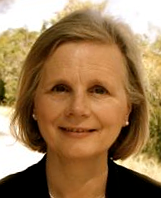Prompted as I wrote a reply to a blog post, I felt I needed to write at greater length on some principles of leading and following. Men, women and children all have a place in leading us in following Jesus. But is it men, women or children who do the best job of leading?
Felicity Dale, writing recently about women as leaders, asks, 'What is God about to do?' (It takes both men and women, Simply Church).
As I began to write a reply to her post, I felt the Holy Spirit leading me along a track I'd not considered before.
I'd had hints of this from time to time over the years but I hadn't put it all together in my mind.
Here's my response to Felicity's post.
Felicity Dale, writing recently about women as leaders, asks, 'What is God about to do?' (It takes both men and women, Simply Church).
As I began to write a reply to her post, I felt the Holy Spirit leading me along a track I'd not considered before.
I'd had hints of this from time to time over the years but I hadn't put it all together in my mind.
Here's my response to Felicity's post.
If we define kingdom as the realm in which the King is obeyed, then wherever men, women and children are following Jesus - that is the kingdom.
But let's remember the children in all this. Believing children have some wonderful advantages over us adult believers. Everybody agrees that men can lead, a growing number agree that women can lead too, but who has considered that children can lead? Sometimes they do so in the most natural and unselfconscious way. And sometimes, as men and women, we just need to swallow our pride and follow them!
What is Father about to do?
I have a strong hunch that he is beginning to show us that all should lead and all should follow. What I mean by that is that we don't need to recognise particular people as leaders and others as followers. Instead we will be recognising leaders in the moment. Who is leading right now? Who is leading by their words, by their actions, by their love, by their compassion, by their joy, by their wisdom, by their humility? If Christ is revealing himself through a particular person right now, follow that person!
I'd like to develop this a little more.
Leaders - What do we mean when we think of leaders and leadership? A leader is clearly a person who leads, someone who goes in front. Leadership extends the idea to suggest someone whose role is to lead, someone who is skilled at leading and is expected to lead often, even always.
But I'd like to ask the question, 'Which way is a person facing when they lead?' There are three possibilities.
Looking forwards - Someone who is looking forwards is looking away from the people who are following. Such a person is looking at Jesus and following him. If I follow such a person I will also be following Jesus. Jesus goes where he chooses to go, the person who is looking towards him follows where he goes. I follow the follower so I go where the follower goes - so I go where Jesus goes. This is good, this is safe, this is what someone who leads should always do.
Looking sideways - I think we often do this. Such people are not looking at Jesus but nor are they looking at those who follow them. They're going off at a tangent. Follow them at your peril!
Looking backwards - Is this what we sometimes mean when we talk about leaders and leadership? Is the focus on the listeners and followers, not on Jesus?
Don't misunderstand me, I'm not talking here about someone speaking to a group of people. You can do that with your eyes firmly focussed on the King. I'm talking about someone who is focussed on the listeners and followers, someone who cares more about being followed than about following Jesus.
Another name for people who do this is 'false shepherd' (or 'bad shepherd'). These people want to feed on the sheep rather than lead the sheep to good pasture. Jesus shows us what a good shepherd is like. He is the Good Shepherd. He told Peter, 'Do you love me? Feed my sheep'.
Perhaps most of us, most of the time, look in all three directions. We gaze partly at Jesus, we glance away to the side, and we look to see who's following us.
Men, women and children - Remember, we're talking about believers here. So now ask yourself, can a man play the part of any of these three kinds of human leader? Yes, he can.
Can a woman play any of these parts? Yes, she can.
Can a child play any of these three parts? Well, perhaps. But in my experience believing children tend to look forward towards Jesus. Young children, in particular, tend to be much too naive to look sideways or backwards. So what does that tell you about the right kind of person to follow?
Jesus wasn't kidding when he told us that unless we come like little children we won't even see the kingdom of heaven.
Questions:
- Do you know people who lead looking forwards, sideways or backwards?
- Would you trust a child to lead you?
- Depending on your answer to the previous question, why? or why not?
See also:
- It takes both men and women - Simply church
- Leaders in the church - Journeys of heart and mind
- Simple church with children - Journeys of heart and mind












